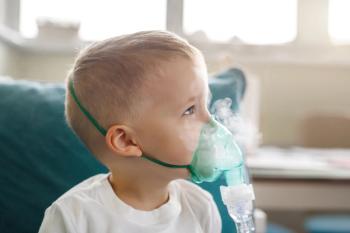
Patients with IBD at a Greater Risk for Serious RSV
Researchers in a new study found that the overall risk of RSV-related hospitalization for adults with inflammatory bowel disease was greatest for those who were 18 to 49 years of age and those who were 65 years of age or older.
Patients with inflammatory bowel disease (IBD) are at an increased risk of serious respiratory syncytial virus (RSV) infection that requires hospitalization compared with those who don’t have IBD, according to a
Importantly, the researchers at the University of Wisconsin School of Medicine and Public Health found in this analysis that the overall risk of hospitalization seems to be greatest for two age groups: those who were 18 to 49 years of age and those who were 65 years of age.
“This finding strongly suggests that underlying IBD is an independent risk factor of RSV infection because younger populations are generally believed to be healthier and less likely to require hospitalization,” researchers wrote. “The underlying mechanism for this increased risk is not fully understood; however, it may be related to immune dysregulation and impaired mucosal immunity in patients with IBD.”
RSV is a common viral infection affecting the respiratory tract. Globally, there are an estimated 1.5 million cases of RSV in adults annually. Older adults, including those with underlying medical conditions, are at increased risk of severe RSV illness and drive the majority of RSV hospitalizations.
CDC’s Advisory Committee on Immunization Practices (ACIP) has recommended RSV vaccination in people ages to 60 to 74 years of age and older who are at increased risk of severe RSV disease, as well as for all adults 75 and older.
The FDA has approved three vaccines for RSV, with the most recently being Moderna’s mRESVIA, which was approved in June 2024. The FDA had previously approved GSK’s Arexvy and Pfizer’s Abrysvo, both of which were approved in May 2023.
“We found that younger patients are a risk for hospitalization, and one risk factor we found was that recent corticosteroid use increased the risk of hospitalization,” one of the authors, Freddy Caldera, DO, MS, FACG, associate professor of medicine division of Gastroenterology and Hepatology, University of Wisconsin School of Medicine and Public Health, said in a recent
Caldera said there needs to be more data replicating their work to determine if the vaccine recommendations should be updated to include even younger patients at risk for severe disease. “The GSK vaccine has been approved for those over the age of 50, but I don’t recommend my patients get this vaccine because they would have to pay out of pocket,” he said. “Insurance follows the ACIP’s recommendation for coverage, and the vaccine can be expensive…ACIP’s feedback was ‘show us more data, show us an immunogenicity study to show the vaccine works.’”
Researchers at the University of Wisconsin School of Medicine and Public Health conducted a retrospective study using the U.S.-based, multi-institutional TriNetX database to assess the risk of RSV-related hospitalization in patients with IBD. Data were collected from Jan. 1, 2007, to Feb. 27, 2023, for 794 adult patients in the IBD-RSV cohort and 93,074 patients in the non–IBD-RSV cohort. The mean age of patients in the IBD-RSV cohort was 55.6 years.
Researchers found that for the IBD patients, there was an increased risk of hospitalization due to RSV compared with the non-IBD group. Of these patients, 361 patients or 45.4% required hospitalization with the mean age of 58.7. Most of the hospitalizations occurred within 24 hours of a positive RSV test.
“This finding is consistent with previous studies that have shown an association between IBD and an increased risk of respiratory infections including influenza, pneumococcal pneumonia, and Pneumocystis jiroveci pneumonia,” researchers wrote.
Researchers also found that patients who had recently received systemic corticosteroids had an increased risk of hospitalization; 36% of the hospitalized patients with IBD had received a systemic corticosteroid prescription within three months before hospitalization.
In the cohort of patients with both IBD and RSV, the mortality rate was 4.7%, which researchers said is consistent with reported mortality of other immunosuppressed patient population. Previous studies of immunocompromised patients, mostly those who have had transplants, have found patient often progress to severe RSV with pneumonia and there is a wide range of mortality rates.
Researchers said they were unable to do an analysis of medication use, including the use of a combination biologic therapy. Other limitations include that fact that RSV testing is not often conducted to confirm diagnosis and the electronic health system did not capture data related to social and economic factors that may have impacted outcomes.
Newsletter
Get the latest industry news, event updates, and more from Managed healthcare Executive.






















